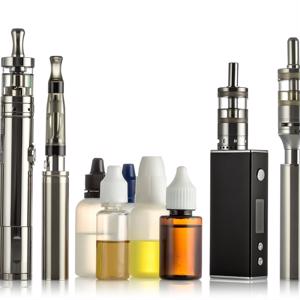Little more than a year after the Food and Drug Administration first issued warnings to more than a dozen U.S. electronic cigarette-related businesses regarding unlawful product packaging and labeling for e-liquids containing nicotine, the industry is facing a new challenge.
In an August 23, 2019 press release, the Centers for Disease Control confirmed that 193 patients had been hospitalized between June 28 and August 20 with “potential cases of severe lung illness” potentially linked to what is known as “vaping” of e-cigarette products.
No official cause for the reported illnesses has been confirmed and many patients reported having used products containing the psychoactive chemical contained in marijuana known as THC, the release further stated.
Currently, e-liquid and other e-cigarette product manufacturers are not required by the FDA to provide labels with complete lists of chemicals and ingredients included in their merchandise (aside from THC-infused products), according to NBC News.
For example, products containing e-liquid manufactured by the e-cigarette maker Juul Labs known colloquially as “Juul Pods,” were found in laboratory testing to produce irritants and other byproducts when “vaped,” according to Medical Xpress.
As of a July 2019 U.S. District Court ruling, e-cigarette manufacturers selling nicotine products that went on the market after August 8, 2016 were given 10 months to submit “applications for marketing” to the FDA based on an industry guidance released by the agency in June. Proper labeling suggestions that adhere to federal law are included in the document, among other recommendations.
Currently, e-cigarette companies that the FDA determines sell products perceived to appeal to minors can potentially be found in violation of several sections in the Federal Food, Drug, and Cosmetic Act for providing “misleading or false” information to consumers, according to the agency.
In May 2018, the FDA sent warning letters to 17 manufacturers, distributors and retailers that the agency flagged after they were found to have sold e-liquids (which include nicotine) that contained “labeling or advertising” that resembled “kid-friendly foods” and displayed “misleading” product information.
For example, a warning letter sent to 13th Floor Elevapors, LLC May 10, 2018 stated that the company had violated the law because several of its products’ labels were found to “imitate food products” mainly “appealing to children” such as that for “Frank N’ Vape” e-liquid, which was referred to as “substantially similar” to the General Mills cereal, “Franken Berry.”
Facing potential “seizures or injunctions,” the companies were given 15 days to remove the products from sales circulation, the Washington Post reported at the time. According to an August 2018 press release issued by the FDA, the 17 entities halted the sale of the 8 e-liquids targeted in the letters, which – according to the Federal Food, Drug and Cosmetic Act – were identified as “misbranded”.
The release also stated that “some” of the companies would potentially sell the same products at a later date with corrected labeling adhering to guidelines outlined in the warning letters.
Since then, other e-liquid companies have rebranded their nicotine products, including Propaganda Premium E-Liquid, for example, which announced in a May 2, 2019 press release that two of its collections would receive “new bottle labels, package designs and names” to have “greater appeal” to the business’s customer base over the age of 21.
In the release, company CEO Nicholas DeNuccio mentioned that both vape stores and the government “have understandably high expectations” and that Propaganda’s legal team “specializes in FDA labeling.”
Make sure you’re keeping up-to-date with all the latest labeling and packaging-related regulations related to the e-cigarette industry by visiting Optimedia Labs’ US webpage or its Canadian site.
